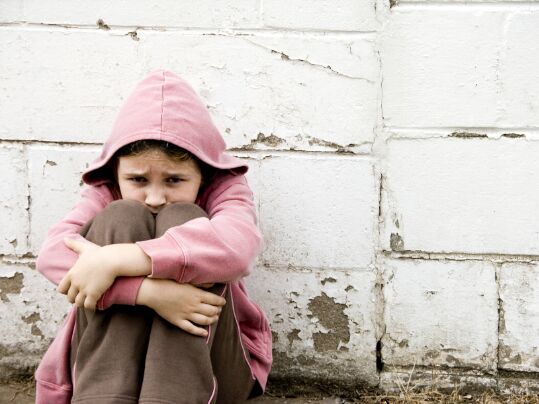Why dread the phobias?
Parents have a key role to play in enabling their child overcome certain types of fears that exceed the required level

Our children bring joy and laughter into our lives and there is no feeling greater in the world than having a secure, happy & healthy child.
Fear is an innate protective emotion. We all face fear at different stages of life. But if fear grips an individual so badly that it hampers their growth, then we need to tackle it. As a parent we all try to protect our children from unreasonable fears.
Here are a few common fears that your child might face, with simple ways to overcome them.
Types of fear in young children can range from:
1. Dark: They fear that if they venture or sleep in the dark, something bad will happen.
2. School, exams: Some children fear going to school, due to difficulty mixing with others, and fear of authority figures like teachers and can cause school refusal.
3. Fear of new individuals
4. Fear of heights
5. Peers: The child may not wish to play in groups.
6. Fear of trying new experiences: Like new food items, or swimming and other activities.
7. Ghosts and monsters: Again, it is commonly seen in the young and even slightly older lot.
8. Separation anxiety from parents: A specific phobia when children have severe difficulty in being separated from their parents. Most children grow out of it, while some do not. They worry that they might not get to see their parents again.
9. Fear of death (thanatophobia): Some children who have battled losing their loved ones at a young age, fear death.
10. Failure: About failure in examination, sports, and other spheres.
Is fear simply bad? No. Fear in the right amount is important, motivating and even protective. As a parent, "don't fear the fear". This may appear tough but is the key to finding solutions.
What can you do to help your child overcome their fear?
1. Don't propagate fear: Many parents begin by scaring young children by saying do not go into the other room, as it is dark, and a monster may grab you. Refrain from such practices.
2. Be a good role model: If there are any fears that you have, accept them, and acknowledge them. Do not deprive your children of learning experiences simply because you are afraid. For instance, if you are afraid of swimming, both you and your child can join the summer swimming classes and conquer the fear together.
3. Use other children to help, not to compare: Never draw comparisons by saying that "look, your friend is not scared, or your elder brother or sister is so brave".
4. Make time to explain the rationale: If a child fears the dark, do not just laugh it off by calling it silly. Acknowledge it that it may seem scary, but this is a normal thing.
5. Understand if some other fear underlies this fear: If a child always gets frightened on seeing a particular adult, or fears going to school by bus, try to find out why. At times child abuse could be an underlying cause. This needs professional help.
6. Fear of the unknown: Explore together with your child
7. Give space and time to the child
8. Seek professional help: Finally, if all else fails, and your child is grappled by any fear, seek professional help from a psychiatrist.
Send your questions to [email protected]



